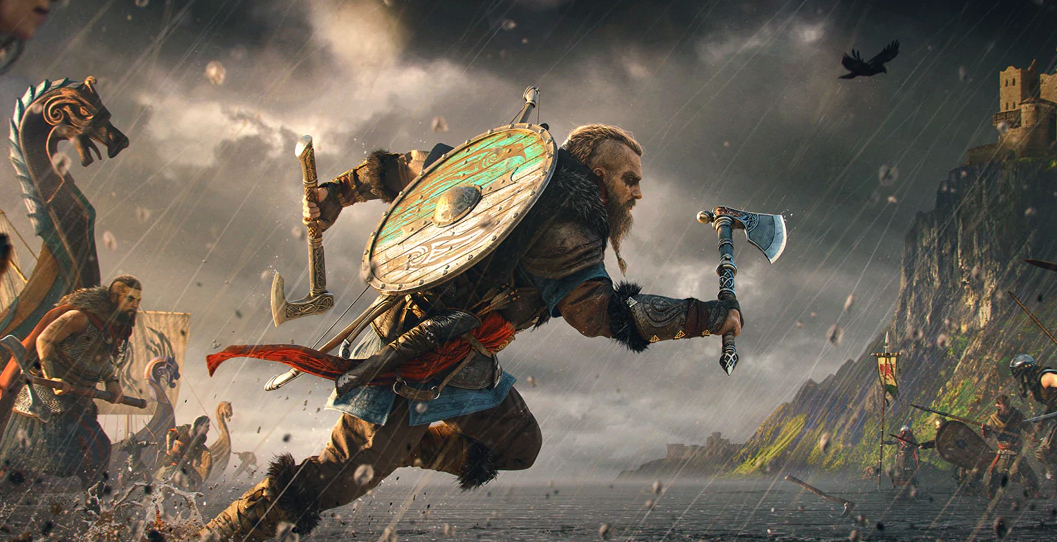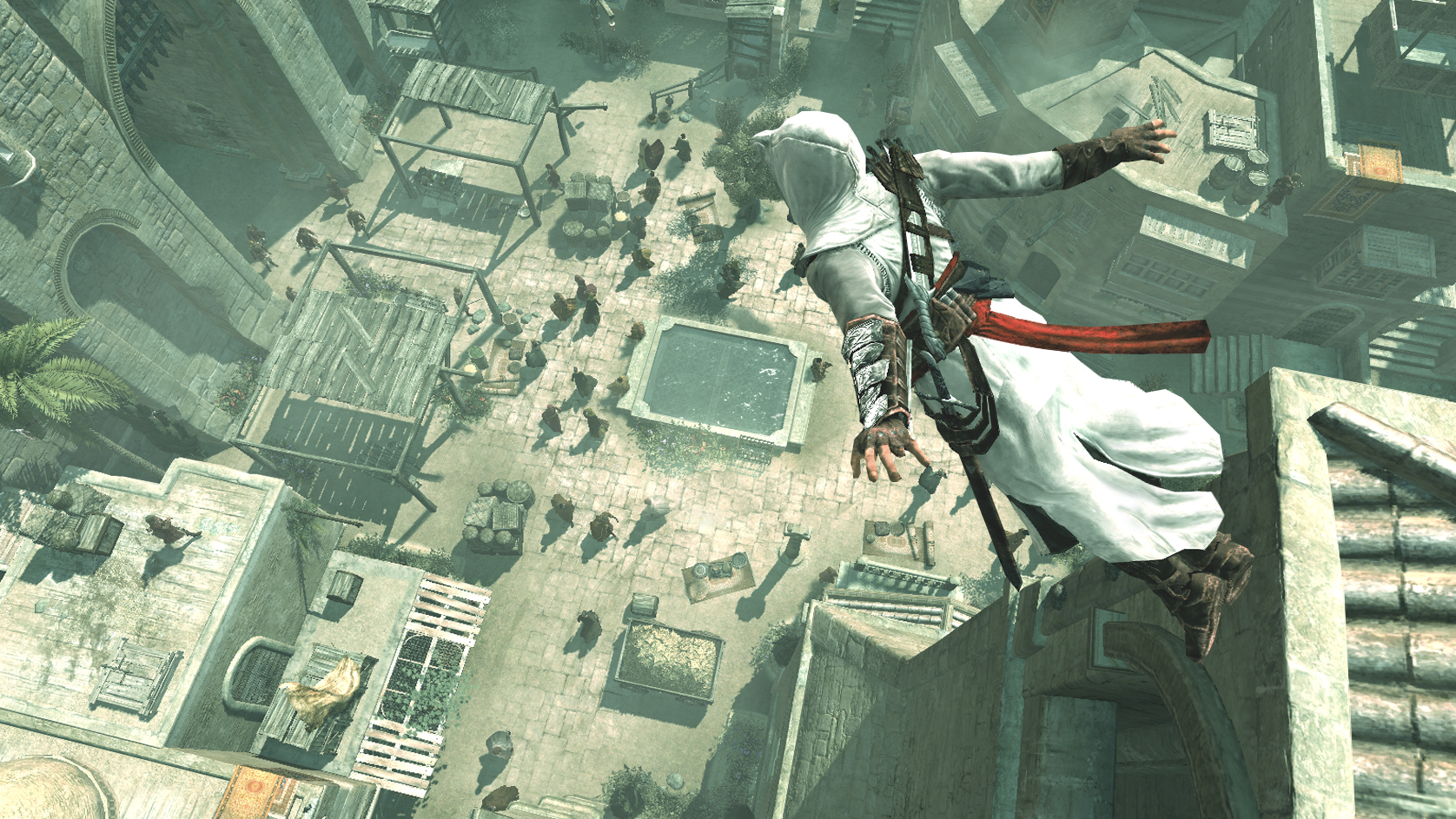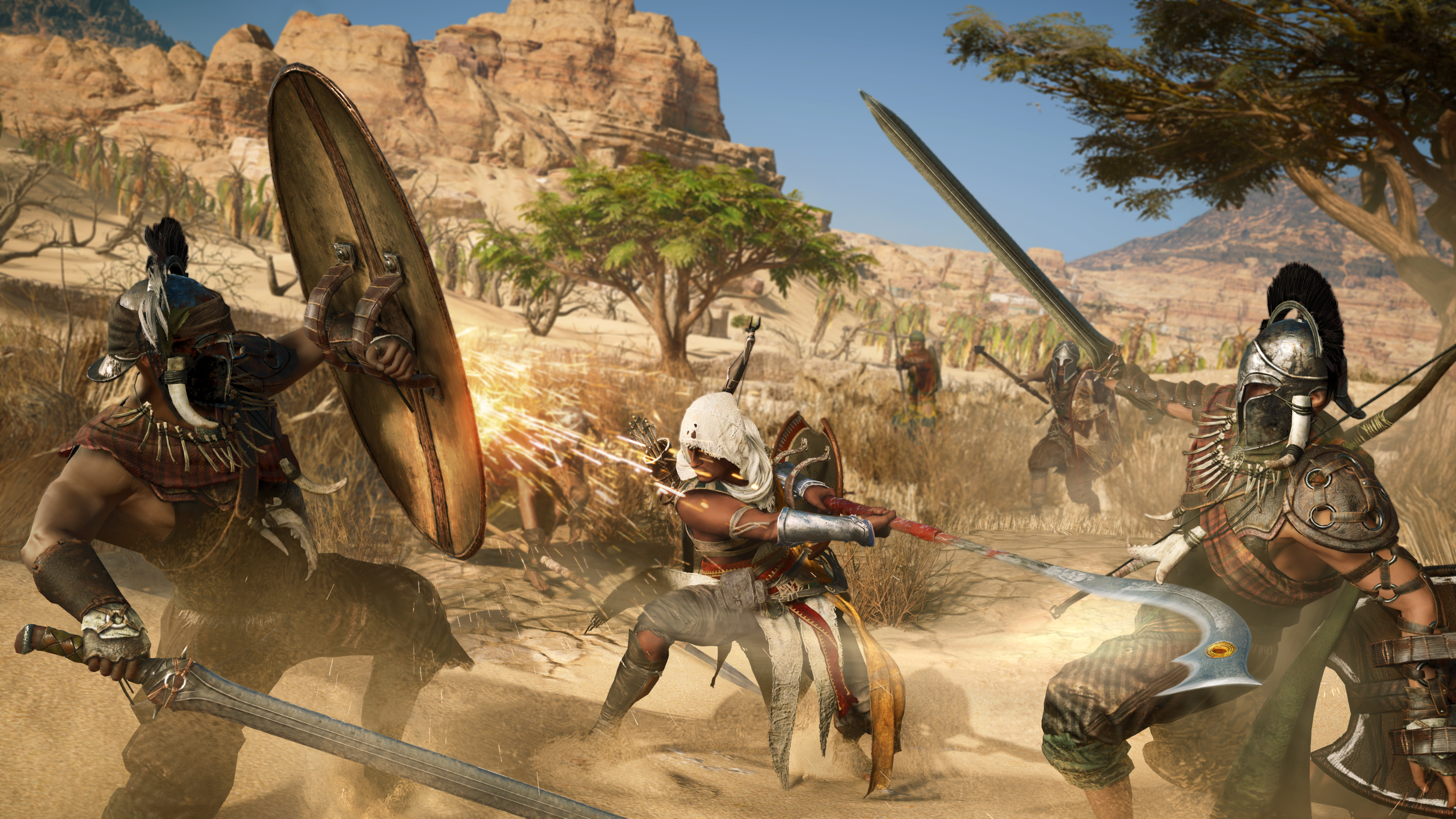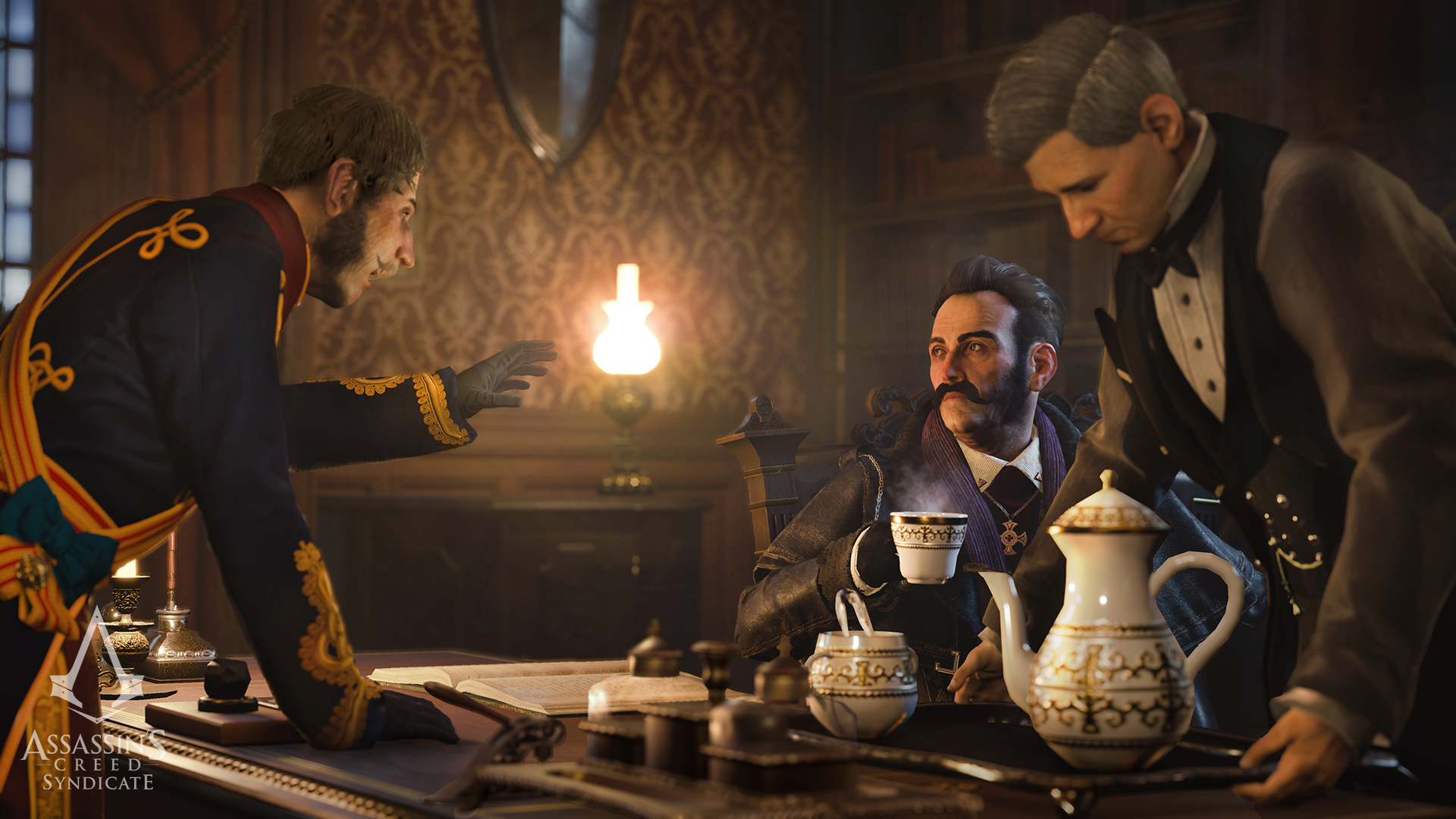The Assassin's Creed series has failed its best idea
The series has never done right by the Assassin vs Templar conflict—will Valhalla make the same mistake?

I'm a pretty keen Assassin's Creed fan—both of the old school stealthy, acrobatic ACII era, and the modern style of sprawling sandbox RPGs. Through its highs and lows, there's always been a real craft to the series, a passion for recreating lush historical scenes and packing them with enough diversions to get you exploring every inch.
But while the games thrive in the fine details of their real-world settings, they've become increasingly thoughtless about the broad strokes of their stories.
The series is built around a central conflict: two opposing groups, the Assassins and the Templars (and their varied predecessors), irreconcilable in their differences to the point that they've been at war for almost all of recorded human history. Their ideological divide is set up cleanly in the very first game. The Assassins fight for human agency, valuing freedom above all else. "Nothing is true; everything is permitted" goes the eponymous creed, about as extreme and clear a mission statement as a 2000 year old secret society can have. The Templars believe that such freedom leads to chaos—that humanity must be carefully controlled and shepherded. They seek to rule the global population, ostensibly for its own good.

It's a classic set-up—law vs chaos, freedom vs authoritarian rule. And other than the minor problem of Assassins suddenly seeming a lot less cool when you realise they're essentially stealthy Libertarians, it's an incredibly fruitful conflict for telling stories in any era. Almost any war, overt or covert, from throughout the annals of history can be reframed through its lens, adding new drama to well-known and more obscure events alike.
Which is why it's such an incredible shame that Assassin's Creed consistently bungles the idea.
From pretty much the second game onwards, the Templars were reduced to mustache-twirling pantomime villains. Instead of spending their time promoting the rule of law and shaping societies, they occupy themselves indulging their vices, being needlessly cruel and masochistic, and sowing chaos and discontent among the populations they control. Oh, and searching for golden macguffins. This does not represent the corruption of a once ideal-driven belief system—as we've seen in Origins and Odyssey, they were cartoonishly horrible bastards before the name 'Templar' had even been invented.
The Assassins, meanwhile, are rogueish heroes, plucky underdogs in the mould of James Bond—despite, like him, basing their entire identity around sanctioned murder. They are always on the right side of history, and the regimes they battle against are always corrupt and inept beyond even the slightest hope of redemption. Which makes it perfectly OK to kill 10 guards in the middle of the street.
The biggest gaming news, reviews and hardware deals
Keep up to date with the most important stories and the best deals, as picked by the PC Gamer team.

Aside from Rogue's clunky toe-dip into moral greyness, it is ever thus in these games, and the stories suffer for it. The Templar villains are never memorable, because their ambitions make no sense, and while the protagonists are more often than not likeable and fun to embody, their actual adventures tend to be defined more by their setpiece moments than their actual objectives. We all remember fist-fighting the Pope—can any of you remember why?
Historical figures like Winston Churchill get to be friends of the Assassins—bad things they actually did are hand-waved as 'Templar influence'.
Which is not to say the series has no good storytelling in it—in fact, it's telling that where the narrative does succeed, it tends to be when it strays as far as possible from the Assassin vs Templar conflict. Pirate lord Edward Kenway's rise, fall, and redemption is genuinely affecting, but him becoming an Assassin is barely a footnote in his story. Alexios/Kassandra's adventures across Ancient Greece are rip-roaring fun, but they're driven by a simple revenge plot, rather than a political battle. It's frustrating that the secret war that's supposed to be at the heart of the series gets such short shrift by comparison.
Worst of all, it's a bad way to approach real historical settings. For the most part, these games have such a careful approach to recreating the past, delving into a huge amount of detail to provide as much authenticity as a knockabout open world reasonably could. But at the same time, they explain away huge, impactful, complicated real world events as the evil doings of two-dimensional villains. Well-liked historical figures like Winston Churchill get to be friends of the Assassins—bad things they actually did are hand-waved as 'Templar influence'. Real world evils such as the East India Company or even the Nazis are muddied by ties to two-dimensional puppet masters. Battling historically bloody and cruel institutions can be cathartic and fun, but what are we supposed to take away from a series where the British Empire are villains in one game, but Queen Victoria is a witty quest giver in another—the Assassins ultimately respectfully agreeing to disagree with her over the thorny topic of violent imperial expansion.

The further you delve into the canon, the more absurd the scenarios become. John F. Kennedy, perhaps the most famous assassination victim of modern times, was, of course, killed by… the Templars.
In other words, if they were a goodie, they were in league with the Assassins, and if they were a baddie, they were backed by the Templars. Except not only are real people never actually straightforward goodies or baddies, this categorisation is made regardless of how their political beliefs might actually have aligned with either secret society. Surely more interesting—and accurate—tales would come out of looking at which historical figures fought for order and peace through strong rule, and which favoured individual freedom and responsibility, regardless of where they fall on a hazy moral spectrum? Wouldn't the Assassin-Templar war be far more compelling if it stuck to a foundation beyond 'stealthy murderers are good, kings and businessmen are evil'?
All of which is to say, I'm excited for Assassin's Creed Valhalla, but I'm also wary. Rampaging around as a Viking warrior sounds great fun, and as a culture themselves turned into cartoonish villains by those who got to write the history books, the Norsemen are fantastic protagonists for a game like this. But at the same time, I'm less than enthused to discover why coastal raids on innocent people were good, actually, because secretly they struck a blow against Alfred the Great At Arbitrarily Making Everyone Unhappy All The Time. Perhaps I'm pining for stories that were never really going to exist in the first place, but I still think Assassin's Creed could do better.

Formerly the editor of PC Gamer magazine (and the dearly departed GamesMaster), Robin combines years of experience in games journalism with a lifelong love of PC gaming. First hypnotised by the light of the monitor as he muddled through Simon the Sorcerer on his uncle’s machine, he’s been a devotee ever since, devouring any RPG or strategy game to stumble into his path. Now he's channelling that devotion into filling this lovely website with features, news, reviews, and all of his hottest takes.

